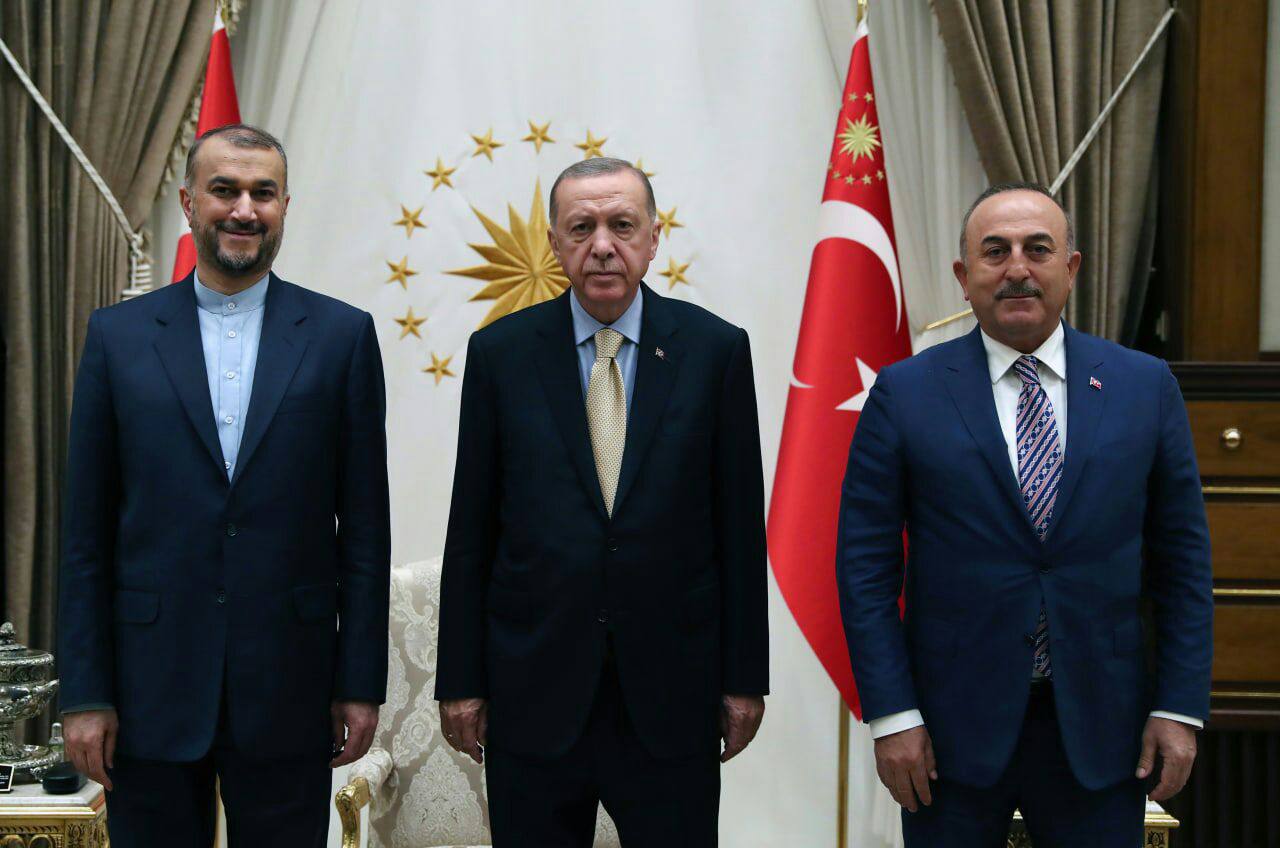Some of the reasons for the importance and necessity of developing Iran-Turkey relations and upgrading it to the level of “strategic partnership” are:
First point: Relations between Iran and Turkey as two important regional players which, compared to other neighboring countries, have “deep and long-standing” historical, cultural, social, political… commonalities and connections and are located in the same civilizational field, are far from their optimal situation.
The trend of relations between the two countries has been “downward” in recent years, and especially in recent months, due to various reasons, including psychological, media, security and political movements of the Zionist regime, has moved away from its past conditions to such an extent that, if not saying that compared to the level of economic, commercial and trade relations in 2017 it has suffered a reversal, it is definitely “stopped” at a certain level.
In a minimal view, the “foreign trade capacity” of Iran and Turkey is something as high as 30 billion dollars; that is to say, the two countries with the existing commercial, economic, transit… facilities and infrastructures at their disposal, even in the conditions of sanctions, with a specific planning, can have more than 30 billion dollars in trade and commerce exchanges. This is despite the fact that in 2020 and 2021, the total foreign trade of the two countries was between 5 to 6 billion dollars, and this year it is expected that to reach 8 billion dollars with a growth of 39 percent. It is noteworthy that Iran and Turkey had previously experienced a trade volume of 21 billion dollars.
Second point: There are “destructive factors” at both the regional and international levels that have been against any kind of friendly and strategic relations between Iran and Turkey for a long time, so they always try to “weaken” and disturb foreign relations of the two countries. Of course, geopolitical and foreign policy issues and some domestic “miscalculations”, especially in Turkey, have also fueled the escalation of this issue.
At the same time, the United States, England and France at the international level, the Zionist regime and some countries at the regional level and some internal movements have never agreed with the friendly relations between Iran and Turkey, which together with Iraq form the three sides of the “heartland of the region”.
Third point: Ahmet Davutoğlu, the Minister of Foreign Affairs and the former Prime Minister of Turkey, who is referred to as a prominent scientific figure and theoretician of the Justice and Development Party and has played an effective role in drawing the outlines of his country’s foreign policy in the past two decades, in his famous book called “Strategic Depth” by comparing the relations between Iran and Turkey to the relations between France and Germany in Europe and considering the role of all historical and geographical factors in the relations of those two important regional players from the past centuries until now, emphasizes that the two countries in whatever conditions they are in, including interaction and confrontation and even war and alliance, have a similar situation and their destiny cannot be separated from each other.
Fourth point: the opportunities and achievements resulting from the expansion of bilateral cooperation between Iran and Turkey are so important and valuable that the two sides cannot achieve such valuable achievements and opportunities through relations with any other country; therefore, care should be taken that relations between the two countries do not lead to a “zero sum game” and the governing rule is a “positive sum game”. Playing in the puzzle of the Zionist regime and wanting to make policies based on the desires of that regime is a policy that ends up to the detriment of Ankara.
There are many historical and regional experiences that show that shaking hands with the Zionist regime is a “security threat” and even a geopolitical one in the long run; especially in a situation where, in deepening relations with the Zionist regime, the public opinion in the region and even the groups and moves that oppose any interaction with the Zionist regime, are neglected.
Although Turkey seeks to deepen its relations with the Zionist regime, it must be accepted that this action, intentionally or unintentionally, will have a negative effect on Turkey’s neighborly relations not only with Iran but also with other anti-Zionist countries and even the Islamic Resistance Front due to the Zionists’ enmity with Iran. The cost that Turkey pays for the relationship with the Zionist regime is far more than the benefits it gets from it.
Final note: Tehran-Ankara relations are “two-dimensional” relations, one dimension of which is “interaction and cooperation” and the other dimension is “competition and confrontation”. Although the two countries are in a political and geopolitical competition to expand their regional sphere of influence and have non-aligned and sometimes conflicting interests in some issues, this issue has not been against bilateral cooperation and should not be an obstacle to the expansion of their relations. As the former foreign minister of Turkey also emphasizes, Turkey and Iran, like Berlin and Paris, if sometimes are caught in a lack of understanding and confrontation, cannot and should not ignore each other in any way.
From the distant past, the Islamic Republic of Iran has a special view on Turkey based on the principle of “neighborhood policy” and “geopolitical partnerships”. Just as Tehran stood by Turkey and Erdogan’s government and political system in the 2016 coup, while condemning the coup, today, with the same view, it is trying to expand bilateral cooperation to the level of strategic partnership with Turkey, the realization of which requires vigilance and positive will of the Turkish government.
